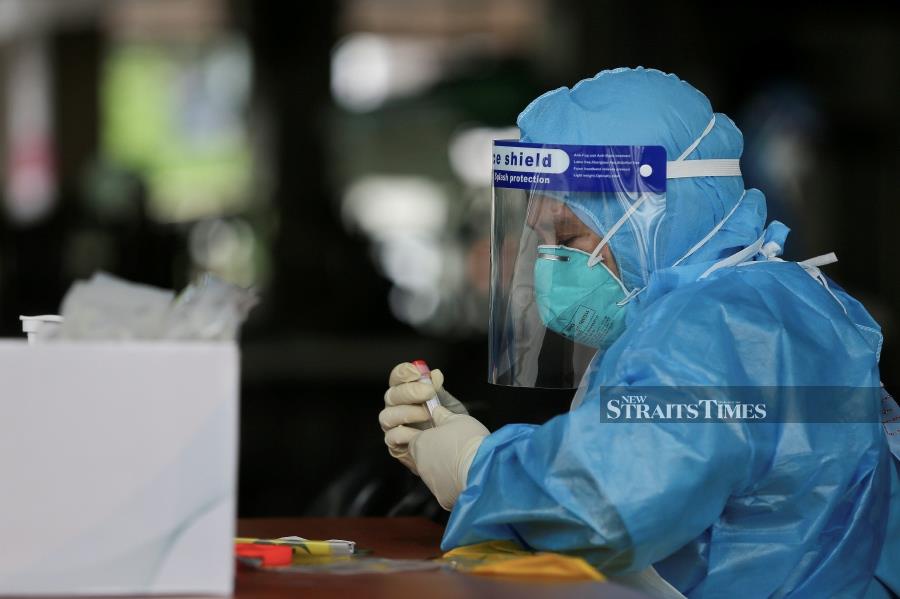IT'S time to take stock of the Covid-19 situation, learn from past failures and move forward in managing the pandemic to sustain economic reopening.
We need to maintain high levels of vaccination readiness, so we shouldn't be quick to reduce the involvement of general practitioners (GPs).
If anything, they are an important part of a future pandemic management strategy.
The potential need for boosters for fully vaccinated individuals, or a mix-and-match strategy with different vaccines, and an increasing trend of child vaccination are possible and we'll need vaccine administration outlets to be on ready-mode.
Moving forward, the Covid-19 Immunisation Task Force should consider registering GPs nationwide as "mini" vaccination centres (PPV) and assign vaccination appointments according to locations (according to risk profiles) through MySejahtera.
The concept of "mega" PPV for a highly infectious airborne disease that thrives when people congregate seems reasonable only when proper ventilation and distancing can be adhered to, and only for handling sensitive vaccines that require specialised storage and procedures not doable in most GP clinics.
One thing we can all agree on is the need to boost healthcare capacity, particularly in increasing the number of beds, intensive care unit capacity, equipment, drugs and reagents, personal protective equipment and other needs.
The healthcare system also requires a stockpile of existing and emerging therapies such as prophylaxes (prevention of disease progression) and drugs to manage late-stage diseases, including promising therapies such as monoclonal antibodies and anti-viral drugs for early-stage disease treatments.
It's obvious that we simply cannot monitor all shopowners to be strict in accepting only fully vaccinated people and ensure all shopgoers practise strict standard operating procedures (SOP) and personal hygiene.
Health director-general Tan Sri Dr Noor Hisham Abdullah pointed to studies indicating high virus loads in the noses of vaccinated and unvaccinated people, confirming EMIR Research's speculation that current vaccines stimulate predominantly systemic immunity and not mucosal immunity.
Therefore, as postulated earlier, the mucosal surfaces (nose and lungs) act as a reservoir for continued infection and transmission, which increases chances of mutations and antigenic drift, that is, changes in the structure of antibody targets such as parts of the virus spike. Over time, mutations may cause the need for continuously updated vaccines.
While waiting for next-generation vaccines, we have no other way but to strictly enforce SOP such as indoor double-masking (with face shield), physical distancing, and ensure sufficient air circulation and purification.
With vast amounts of data collected via MySejahtera, efforts should be made to revive the Hotspot Identification by Dynamic Engagement early-warning predictive system to identify a potential super-spreading hotspot before it emerges.
Additionally, as soon as the study on prices of Covid-19 self-test kids is done, the kits should be made widely available for self-management (testing and isolation), and paired with enhanced contact-tracing technology. Meanwhile, immunological and viral genomic studies are crucial in fighting the pandemic.
When combined with global research on the correlation between demographic profiles, vaccine types, antibody levels and protection against different variants, it can help provide a better "feel" of the immunological status of the nation, and guide the decision regarding if and when boosters and vaccination of children may be needed.
Additionally, we should start to monitor other virus transmission reservoirs such as those in animals and also conduct genome sequencing to monitor potential cross-overs to humans.
Lastly, there is a need to scale up clinical trials on potential drugs and therapies. For example, why not consider promising nasal sprays for local trials? An investigation by Winchester and colleagues on the clinical efficacy of the nitric oxide nasal spray for the treatment of mild Covid-19 infection reported a fast and significant drop (95 per cent) in viral load within 24 hours and 99 per cent reduction within 72 hours.
If those tested positive can have access to cheap early-stage treatments to reduce viral loads in upper respiratory tracts before the virus spreads into the lower respiratory system, it could be a game-changer in stifling infection, transmission and disease progression.
Let's explore all options. Past failures of premature reopening of high-risk areas and schools, low monitoring and enforcement of SOP (particularly in high-risk clusters), half-hearted restrictions and inconsistent policies must not be repeated.
The time for proactive, consistent, clearly communicated, data-driven policymaking is now or never.
The writer is the Head of Science and Technology at EMIR Research, an independent think tank focused on strategic policy recommendations based on rigorous research


